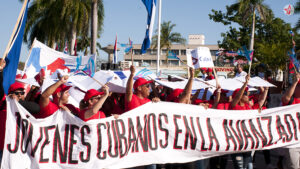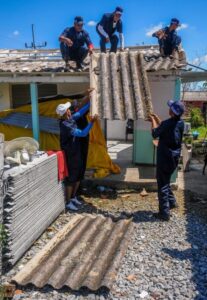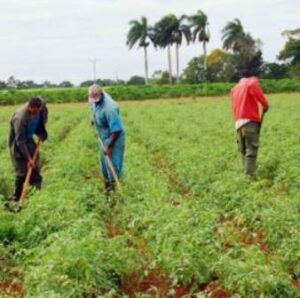The province of Ciego de Ávila is facing an epidemiological situation characterised by a sustained increase in febrile syndromes over the last ten weeks, according to information given to Invasor by Yamisleydis Ruiz Marache, head of the Department of Communicable Diseases at the Provincial Centre for Hygiene, Epidemiology and Microbiology.
The municipalities of Ciego de Ávila, Morón, Ciro Redondo and Majagua are those presenting the highest incidence, with the first two leading in the daily average of cases.
So far this year, 5038 cases of febrile syndromes have been reported. Laboratory diagnosis has confirmed the circulation of dengue, from which only serotype 3 has been isolated, and chikungunya. Furthermore, one suspected case of Oropouche is reported in the municipality of Chambas and one confirmed in Morón.
Despite the rise in figures, health authorities confirmed that there have been no fatalities from dengue and that, to date, there are no patients in a serious or critical state admitted to Health units.
FOCUS ON DENGUE PREVENTION
Given the epidemiological panorama, the recommendations focus on citizen action. “When faced with a febrile syndrome, the first thing the population should do is go to the family doctor, the polyclinic or the nearest Health institution,” indicated the official source.
However, it was stressed that the most effective measure is prevention in the homes. Systematic practice of family and work autofocal was insisted upon, a strategy that consists of eliminating or neutralising all possible breeding grounds for the Aedes Aegypti mosquito, the vector transmitting dengue and chikungunya. This includes properly covering water containers, perforating plant pots and eliminating any object that could accumulate rainwater, such as cans, bottles or old tyres.
ACUTE DIARRHOEAL DISEASES: FIGURES DECLINE, BUT RISK PERSISTS
On the other hand, the report on Acute Diarrhoeal Diseases (ADD) shows a downward trend. Until the end of July, 1985 medical attentions were notified, which represents a rate of 534 per 100 000 inhabitants. This figure is significantly lower than the 4067 attentions recorded in the same period the previous year, with a reduction of 2082 cases.
Nonetheless, 37.4 per cent of these attentions required hospital admission, and more than half (50.8 per cent) corresponded to those under 15 years of age.
The risk classification by municipality indicates Morón, Primero de Enero and Venezuela as high-risk territories. Florencia and Majagua are in the medium-risk category, whilst the rest of the municipalities are considered low risk.
Given the current climatic conditions, favourable for a resurgence of these diseases, the population is urged not to lower their guard and to extreme hygienic-sanitary measures.
The situation requires a joint effort between Health institutions and the community to cut the chains of transmission and protect the welfare of the Avilanian population.
KEY RECOMMENDATIONS FOR THE POPULATION
To prevent febrile syndromes (Dengue/Chikungunya):
• Conduct autofocal in the home and workplace weekly.
• Go immediately to the doctor in case of fever, pain behind the eyes, muscle or joint pain.
To prevent Acute Diarrhoeal Diseases:
• Boil water for consumption or use sodium hypochlorite (available in all pharmacies) for its disinfection.
• Wash hands frequently, especially before eating and after going to the toilet.
• Guarantee adequate cooking and conservation of food.




